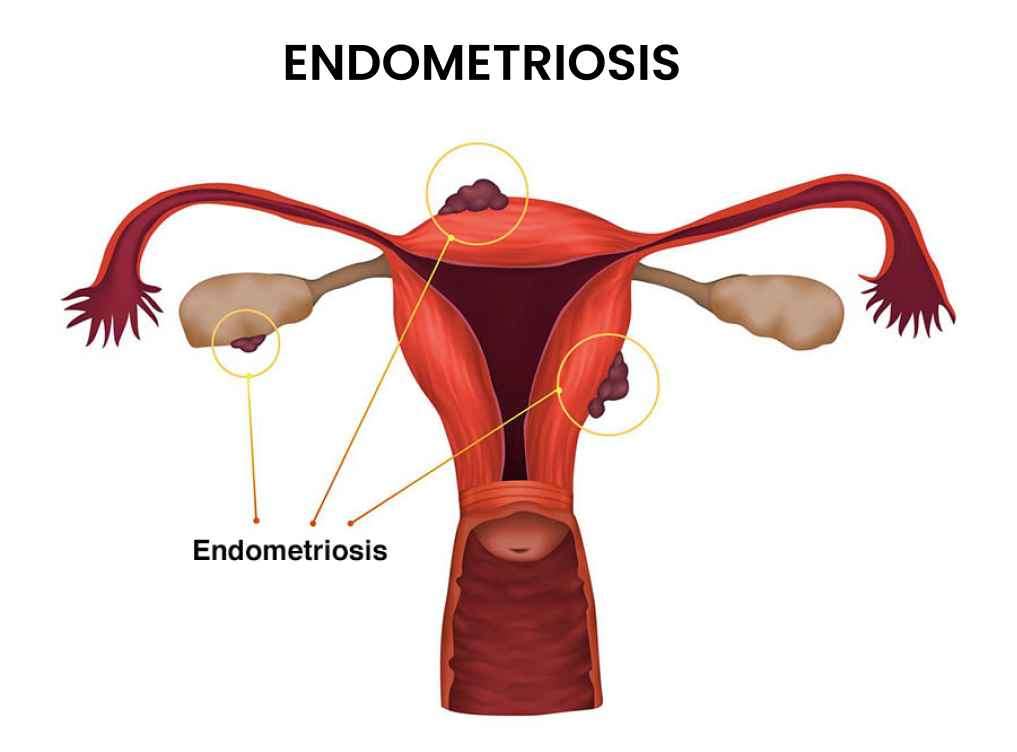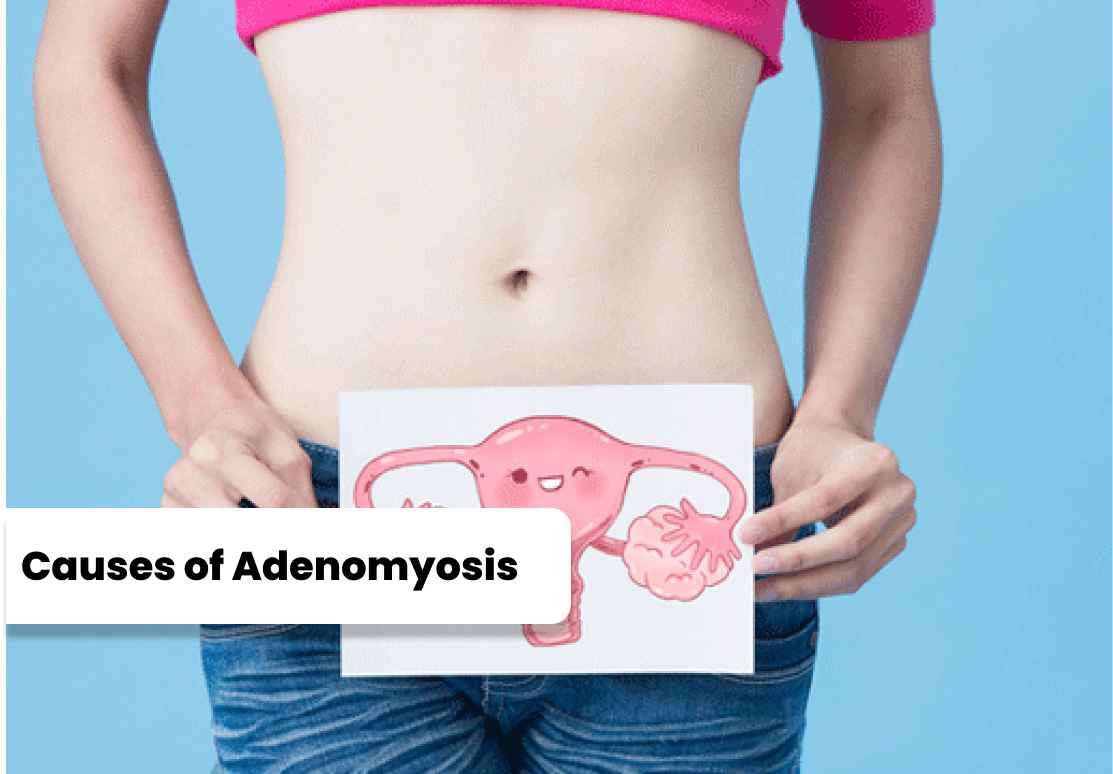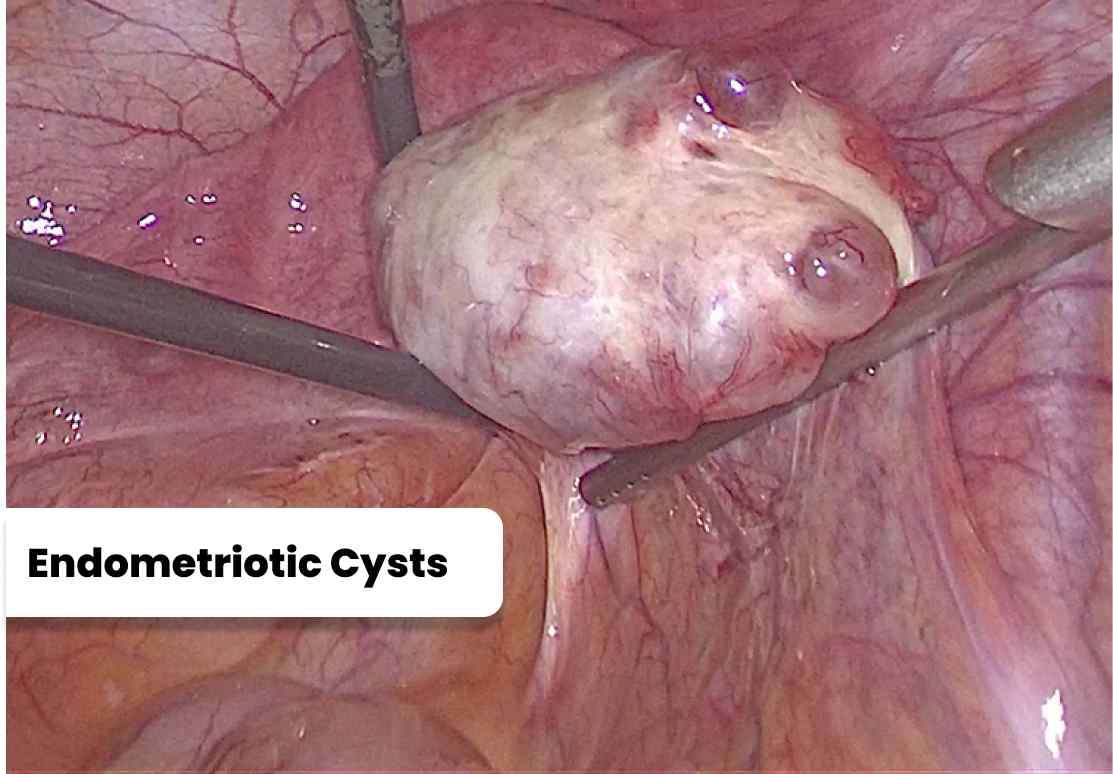Endometriosis is a chronic disorder characterized by the abnormal growth of endometrial tissue outside the uterus. The tissue can implant itself on organs such as the ovaries, fallopian tubes, and pelvic lining, resulting in the formation of endometriotic lesions.

Endometriosis is a chronic disorder characterized by the abnormal growth of endometrial tissue outside the uterus. The tissue can implant itself on organs such as the ovaries, fallopian tubes, and pelvic lining, resulting in the formation of endometriotic lesions.
Diagnosing endometriosis can be challenging due to the variability of symptoms. Common signs include pelvic pain, heavy or irregular menstrual bleeding, painful bowel movements or urination during menstruation, and infertility. However, these symptoms can be attributed to other conditions as well. Healthcare providers may perform an endometriosis biopsy to confirm the diagnosis.

Diagnosing endometriosis can be challenging due to the variability of symptoms. Common signs include pelvic pain, heavy or irregular menstrual bleeding, painful bowel movements or urination during menstruation, and infertility. However, these symptoms can be attributed to other conditions as well. Healthcare providers may perform an endometriosis biopsy to confirm the diagnosis.
The treatment of endometriosis aims to manage symptoms, reduce pain, and improve fertility prospects. Various options are available, including medication and surgical interventions. a. Medications:
Medications such as nonsteroidal anti-inflammatory drugs (NSAIDs) and hormonal therapies, like birth control pills or gonadotropin-releasing hormone (GnRH) agonists, are commonly prescribed to alleviate pain and halt the growth of endometriotic lesions. b. Endometriosis Surgery:
Surgical intervention may be necessary in some cases. Endometriosis surgery can be performed using different techniques, depending on the severity and location of the endometriotic lesions.
i. Endometriosis Ablation:
This surgical approach involves removing or destroying the abnormal tissue using heat or laser energy.
ii. Excision Surgery:
Excision surgery involves carefully cutting out the lesions from the affected organs.
iii. Scar Endometriosis Excision:
In cases where scar tissue has formed due to endometriosis, this procedure is performed to remove adhesions and restore organ functionality.

The treatment of endometriosis aims to manage symptoms, reduce pain, and improve fertility prospects. Various options are available, including medication and surgical interventions.
a. Medications:
Medications such as nonsteroidal anti-inflammatory drugs (NSAIDs) and hormonal therapies, like birth control pills or gonadotropin-releasing hormone (GnRH) agonists, are commonly prescribed to alleviate pain and halt the growth of endometriotic lesions.
b. Endometriosis Surgery:
Surgical intervention may be necessary in some cases. Endometriosis surgery can be performed using different techniques, depending on the severity and location of the endometriotic lesions.
i. Endometriosis Ablation:
This surgical approach involves removing or destroying the abnormal tissue using heat or laser energy.
ii. Excision Surgery:
Excision surgery involves carefully cutting out the lesions from the affected organs.
iii. Scar Endometriosis Excision:
In cases where scar tissue has formed due to endometriosis, this procedure is performed to remove adhesions and restore organ functionality.
Endometriotic cysts, also known as ovarian endometriomas, can occur in the ovaries. Treatment strategies for ovarian endometriomas may involve a combination of medical management and surgical intervention. Endometriotic Cyst Treatment
a. Medical Management:
Small ovarian endometriomas may be monitored over time to assess their growth, while larger cysts or those causing severe symptoms may require surgical removal. b. Surgical Intervention:
The surgical procedure to remove an ovarian endometrioma is known as endometriosis cystectomy.

Endometriotic cysts, also known as ovarian endometriomas, can occur in the ovaries. Treatment strategies for ovarian endometriomas may involve a combination of medical management and surgical intervention.
Endometriotic Cyst Treatment
a. Medical Management:
Small ovarian endometriomas may be monitored over time to assess their growth, while larger cysts or those causing severe symptoms may require surgical removal.
b. Surgical Intervention:
The surgical procedure to remove an ovarian endometrioma is known as endometriosis cystectomy.
|
Serial No |
City |
Minimum Cost (INR) |
Average Cost (INR) |
|
1 |
Mumbai |
1,50,000 |
4,00,000 |
|
2 |
Delhi |
1,20,000 |
3,50,000 |
|
3 |
Bangalore |
1,00,000 |
3,00,000 |
|
4 |
Chennai |
90,000 |
2,80,000 |
|
5 |
Kolkata |
80,000 |
2,50,000 |
|
6 |
Hyderabad |
80,000 |
2,50,000 |
|
7 |
Pune |
70,000 |
2,20,000 |
|
8 |
Ahmedabad |
60,000 |
2,00,000 |
|
9 |
Jaipur |
60,000 |
2,00,000 |
|
10 |
Chandigarh |
50,000 |
1,80,000 |
|
11 |
Lucknow |
50,000 |
1,80,000 |
|
12 |
Indore |
40,000 |
1,60,000 |
|
13 |
Kochi |
40,000 |
1,60,000 |
|
14 |
Coimbatore |
35,000 |
1,40,000 |
|
15 |
Bhopal |
35,000 |
1,40,000 |
|
16 |
Nagpur |
30,000 |
1,20,000 |
|
17 |
Goa |
30,000 |
1,20,000 |
|
18 |
Mangalore |
25,000 |
1,00,000 |
|
19 |
Trivandrum |
25,000 |
1,00,000 |
|
20 |
Guwahati |
20,000 |
80,000 |
|
Serial No |
Hospital Name |
Address |
Contact Number |
|
1 |
All India Institute of Medical Sciences (AIIMS) |
Ansari Nagar, Aurobindo Marg, New Delhi - 110029 |
+91-11-26588500 |
|
2 |
Post Graduate Institute of Medical Education and Research (PGIMER) |
Sector-12, Chandigarh - 160012 |
+91-172-2747585 |
|
3 |
Sanjay Gandhi Postgraduate Institute of Medical Sciences (SGPGIMS) |
Rae Bareli Road, Lucknow, Uttar Pradesh - 226014 |
+91-522-2668700 |
|
4 |
JIPMER (Jawaharlal Institute of Postgraduate Medical Education and Research) |
Dhanvantari Nagar, Puducherry - 605006 |
+91-413-2296000 |
|
5 |
Sree Chitra Tirunal Institute for Medical Sciences and Technology (SCTIMST) |
Medical College P.O., Thiruvananthapuram, Kerala - 695011 |
+91-471-2524266 |
|
6 |
King George's Medical University (KGMU) |
Chowk, Lucknow, Uttar Pradesh - 226003 |
+91-522-2257450 |
|
7 |
Nizam's Institute of Medical Sciences (NIMS) |
Punjagutta, Hyderabad, Telangana - 500082 |
+91-40-23489000 |
|
8 |
Government Medical College and Hospital (GMCH) |
Sector 32, Chandigarh - 160030 |
+91-172-2601023 |
|
9 |
Institute of Medical Sciences (IMS), Banaras Hindu University (BHU) |
Lanka, Varanasi, Uttar Pradesh - 221005 |
+91-542-2367568 |
|
10 |
Osmania General Hospital |
Afzal Gunj, Hyderabad, Telangana - 500012 |
+91-40-24600146 |
Please Wait..